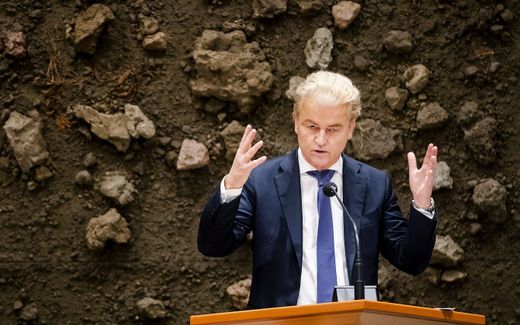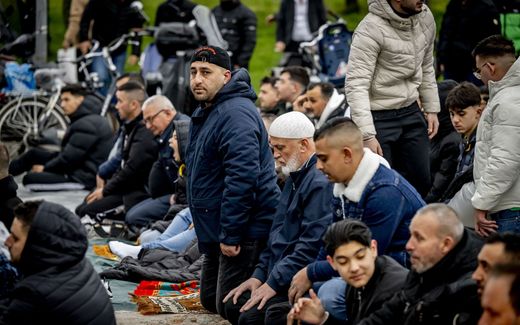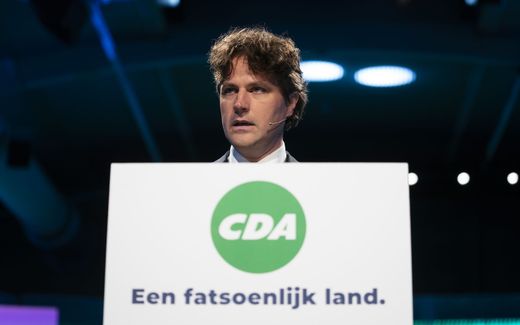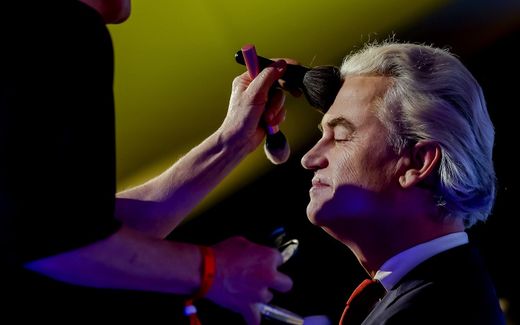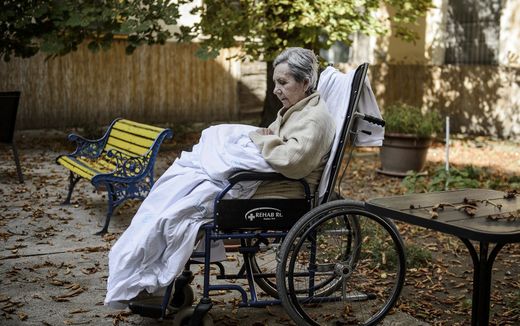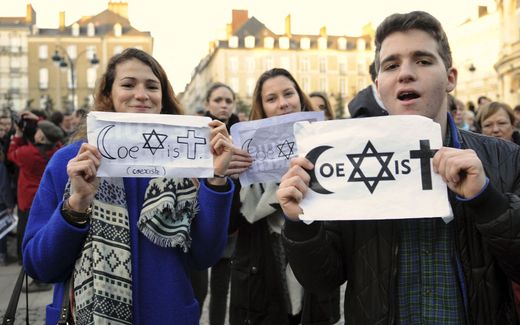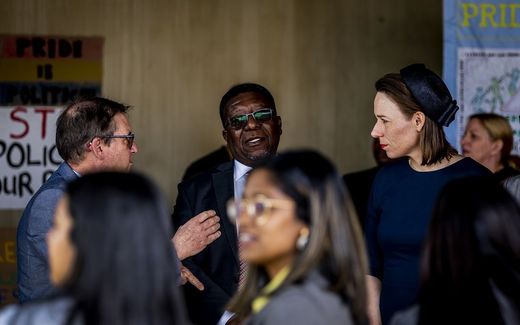New Dutch coalition doesn’t liberalise abortion but is not pro-life either
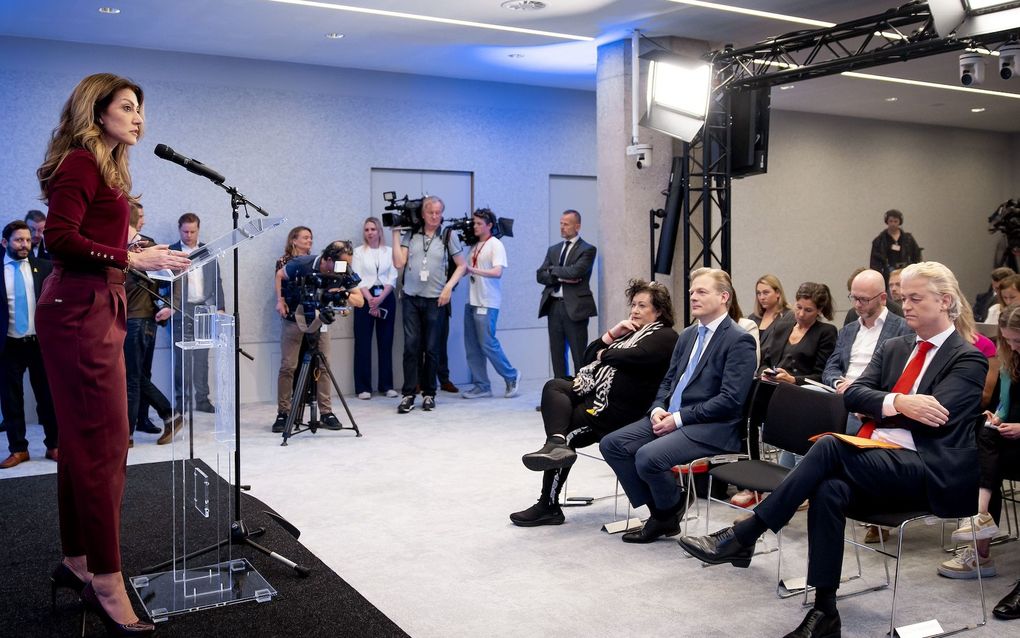
Liberal leader Dilan Yesilgoz (left) at the presentation of the new coalition plan Thursday morning. Photo ANP, Koen van Weel
Western Europe
The new Dutch coalition will not liberalise policies around abortion, embryo research and euthanasia. However, members of parliament are free to support initiatives from the opposition. That means that the coalition as such does not speak out for the protection of unborn life.
That is one of the elements of the new coalition agreement in the Netherlands. The agreement was presented on Thursday.
Especially the left-wing parties in the Lower House are advocating to remove abortion from the Penal Code and the creation of embryos for research purposes. If they present their proposals smartly, they can be successful.
The 26-page agreement is called “Hope, guts and pride”. Four parties have been negotiating about this after the general elections in November 2023. The parties concerned are Geert Wilders’ Freedom Party PVV, the Liberal Party VVD, Pieter Omtzigt’s New Social Contract NSC, and the Farmers’ Movement BBB. Apart from Prime Minister Mark Rutte’s party, VVD, all the groups have never been in government. On the contrary, Geert Wilders has even been in outspoken opposition against the government for twenty years.
The title “Hope, guts and pride” is meant to show a new right-wing spirit in Dutch politics. This ‘hope’ expresses itself in the following points:
Asylum and migration
The coalition discusses the “toughest entrance regime for asylum and migration”. This was to be expected since Geert Wilders has been campaigning against immigration –especially of Muslims– since 2004.
The government is bound to EU and other international rules regarding asylum and migration. The coalition plans to apply for opt-outs.
Newcomers who want Dutch citizenship have to learn about the Holocaust.

Islam and religious freedom
At least two of the four parties forced Wilders to express his respect for the rule of law. From his track record in the past twenty years, there was reason to doubt whether he would grant Muslims the right to religious freedom. For this reason, the agreement makes “safeguarding the rule of law” a cornerstone of the new governing program.
On the other hand, the agreement also says that the rule of law is threatened by Islamic terrorism and organised crime. Because of this, measures will come against the “foreign financing” of Dutch (religious) organisations.
Apart from this, there will be a “regulation” of the amplified prayer calls for Muslims.
Christian education
The four parties say to respect the freedom of education as written in Article 23 of the Constitution. This article, which dates from 1917, has facilitated a long tradition of Christian schooling.
However, there is growing criticism of this because also Muslims use this freedom for their schools, which is controversial for the right-wing parties such as Wilders’ PVV. But it is also controversial on the left since some conservative schools hold to the traditional sexual ethos and reject same-sex marriage and homosexual practice.
Although the agreement supports young people who come out as LGBT, the new coalition says that “relational and sexual education” must become “more neutral and age-appropriate”.
Especially for Muslim weekend schools, there will be some sort of inspection to prevent “hatred and violence.” The former government had already been trying to legislate that. Still, it came under criticism for fear of intrusion into religious freedom. Also, churches feared government officials who would inspect the teaching in their catechism classes.
Embassy to Jerusalem
The coalition supports the “existence and safety” of Israel. The new government will examine “when the embassy relocation to Jerusalem” can occur. In an earlier vote in the Lower House earlier this year, both VVD and NSC were against such a relocation.
The agreement speaks repeatedly about measures against anti-Semitism.
Other issues
The new coalition very clearly states that the minimum age for prostitutes will be 21 years. At the moment, this is 18 years. The change has been controversial for a long time already. The Christian parties will support this proposal.
The coalition is against enlargement of the European Union, but that is the most critical thing the agreement says about the EU. Nowhere is it written that the Netherlands should leave the Union or that there should be a referendum about this.
The new government will enshrine the 2 per cent Defence budget in legislation to ensure that the country meets NATO norms.

What’s next?
This coalition agreement is only a first text. Next week, the Lower House will debate it, which is expected to lead to the next step: the formation of the actual cabinet. That new cabinet will elaborate on the guidelines from the coalition agreement.
Usually, the leader of that formation is the prime minister, but it seems that it will be different this time. Geert Wilders has accepted that he will not become prime minister since his coalition partners don’t see him as a team worker.
The actual cabinet formation may take at least one week so King Willem-Alexander could swear in the new government by the first week of June.
Related Articles


